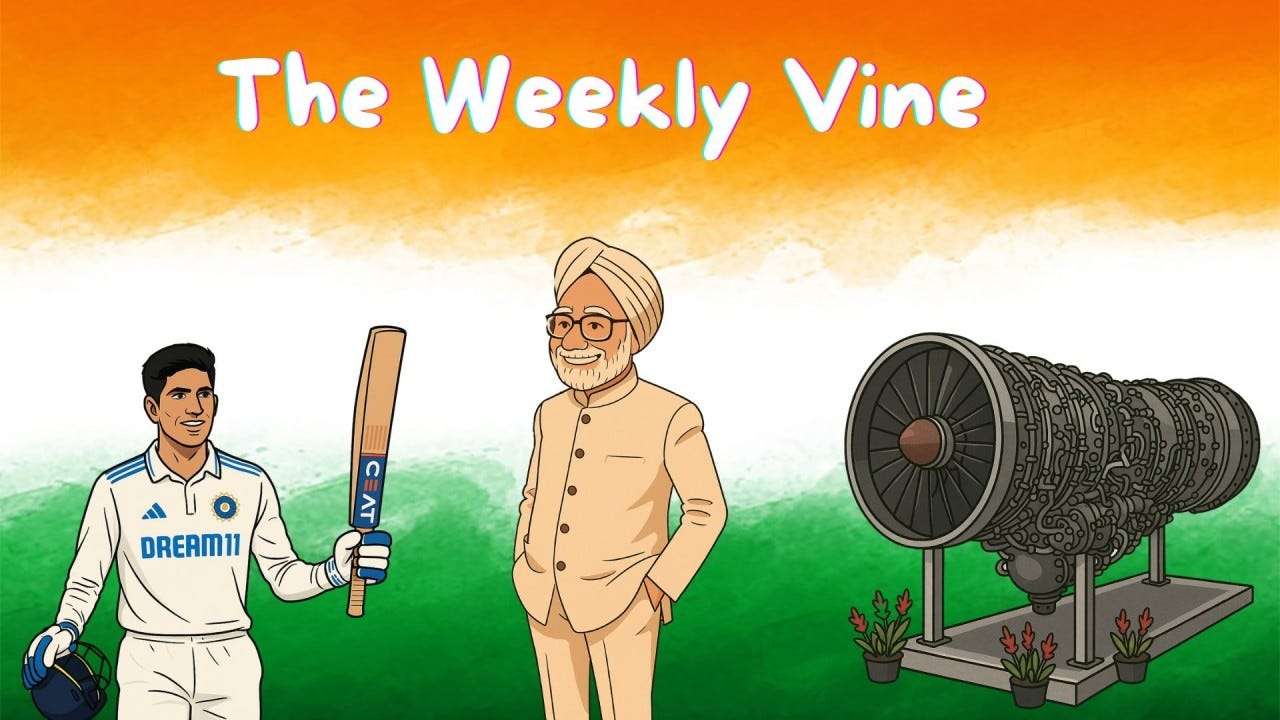India recently became the fourth-biggest economy in the world, which promptly brought the usual have-thoughts out of the closet. Armed with economic jargon and overall apathy, they rushed to explain why there was absolutely no reason to celebrate.
Of course, whether the have-lots are more beneficial to the economy than the have-thoughts is a separate debate altogether—but let’s just say the former build things, while the latter build Twitter threads.
That’s a discussion for another time.
India’s economic journey is even more remarkable because we achieved it without turning into a one-party authoritarian state that bans Winnie the Pooh—and despite having the word “socialist” shoehorned into our Constitution’s preamble.
That’s not to say India is a WENA utopia. Far from it. But we’ve always been a million mutinies away from slipping into autocracy.
Democracy is a funny thing.
Just look at our neighbours—born around the same time—who haven’t had a single Prime Minister last a full term and stage coups like we stage item numbers in our movies.
India’s growth story becomes even more astonishing when you consider that we’ve built world-class industries from scratch, launched rockets to the dark side of the moon, and still had enough talent left to be brain-drained into becoming CEOs of American companies.
We did all this despite being perennially surrounded by combustive neighbours, by world powers constantly cocking their snooks at us, and an Anglosphere press still trapped in colonial simulacrum—forever trying to mock the natives like it’s still 1890.
Our system is so remarkable, we even managed to tame the communists—forcing them into the indignity of contesting elections rather than discussing revolution in coffee shops.
And we did it while keeping all our identities intact, never losing the five-thousand-year thread of our civilisational self. We did it with 700 languages and dialects. With six major religions. With states that are bigger than most countries. And with a complicated yet robust democracy that stretches from the panchayat to a bicameral parliamentary system.
Take mine.
I’m a slightly anglicised Bengali who has lived in Chhapra, Kolkata, Gwalior, Kota, Udupi, Mumbai, and now Delhi—and I’m married to a Telugu woman. Which means I can now appreciate Aara Heele Chhapra Heele with the same fervour as Ami Chini Go Chini and Naatu Naatu, realising that all of them are essential strands in the national cultural identity.
It doesn’t matter if the naysayers are focused on the negative. That’s their job. Ours is to keep calm and carry on. Because no matter the size of our economy, India’s national identity has been forged by one thing: an unwavering refusal to let any other nation dictate our actions.
Even the things the critics complain about—poverty, inequality, infrastructure—will be fixed. Not through sermons, but through sheer, stubborn grit.
One day, every Indian will be lifted from poverty. One day, the clear stream of reason will no longer lose its way into the dreary desert sand of dead habit.
Why? Because India is the greatest story ever told.





Thanks for this uplifting, smart, and optimistic take on matters Indian...
Brilliant